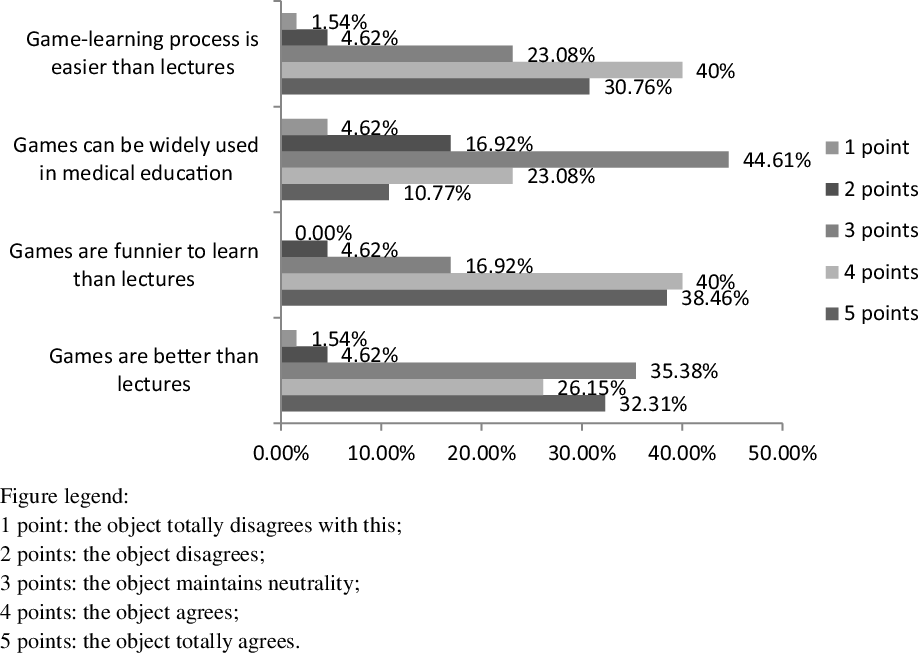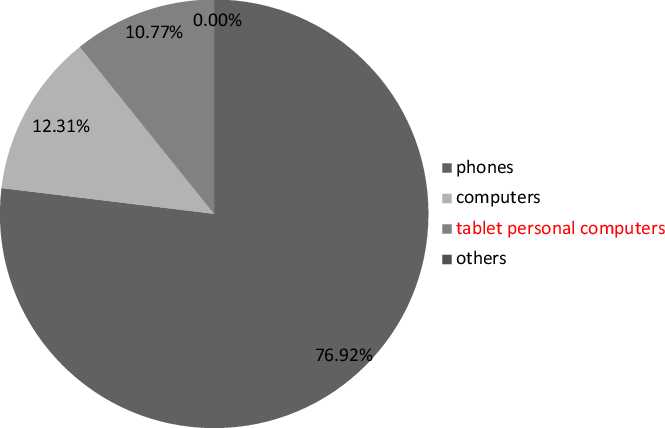The article by Hu et al. is very meaningful. Reference Hu, Liu and Li1 We agree that their game-based computer application proved to be an effective tool for teaching medical students. Furthermore, there have also been some other articles suggesting the effectiveness of game-based learning. Reference Moradian and Mehraein Nazdik2,Reference Hu, Xiao and Li3 Therefore, we think it necessary to pay more attention to game-based learning. But the original study did not discuss the opinions of the students for some limitations while we think the views of students in game-based learning are equally important, because the joint involvement of teachers and students is required during the teaching process and the students’ thoughts would also affect the quality of teaching; thus, we did a survey by questionnaire to investigate students’ perceptions of learning disaster medicine with a novel game-based computer application.
This study randomly selected, using Likert scale, 65 medical students to complete the questionnaire. Among them, 43 students are female. In this questionnaire, we asked students whether they liked games or lectures to learn disaster medicine. We also investigated the advantages they thought of games over lectures, and which electronic products they liked to use when studying through games. And then we collected the data and drew 2 figures by Microsoft Excel to analyze the results. The results have shown that 38 students (58.5%) hold the view that games are better than online lectures, and 23 students (35.4%) are sitting on the fence. In addition, 51 students (78.5%) believe that it could bring more enjoyment in their disaster medicine knowledge learning when using game instruction. And in some research, many participants consider that the serious game has understandable instructions, presented the contents clearly, and it favors the engagement on study. Reference Tubelo, Portella and Gelain4 What’s more, 46 students (70.8%) think that the game-learning process is easier than lectures (Figure 1). We can draw another conclusion that 50 students (76.9%) prefer to use mobile phones instead of computers or other electronic products for game-based learning (Figure 2). Thus, it can be seen that, the majority of the students affirmed the way of leaning knowledge of disaster medicine through game-based application in this survey, and some students thought the extensive application of games in medical education remains to be verified. This study divided the data we collected into 2 groups. One group is about the students’ views on game-based teaching; the other group is about students’ views on teaching by lectures. Then we used SPSS to perform a Pearson chi-squared test. The result showed that P < 0.001, which suggested that there was a significant difference between the 2 groups.

Figure 1. Students’ attitude toward 4 statements as follows with 5 scores.

Figure 2. Students’ choice of game electronics.
To sum up, more than half of the students in our study tend to improve knowledge of disaster medicine through serious games rather than online lectures, which contributes to game-learning development. Mobile phones are the electronics the students most want.
Acknowledgments
The authors acknowledge all the medical students who took the questionnaire.
Funding statement
This work was financially supported by the Strategic Priority Research Program of the Chinese Academy of Science (XDA23090502).
Conflict(s) of interest
All authors declare no competing interests.




